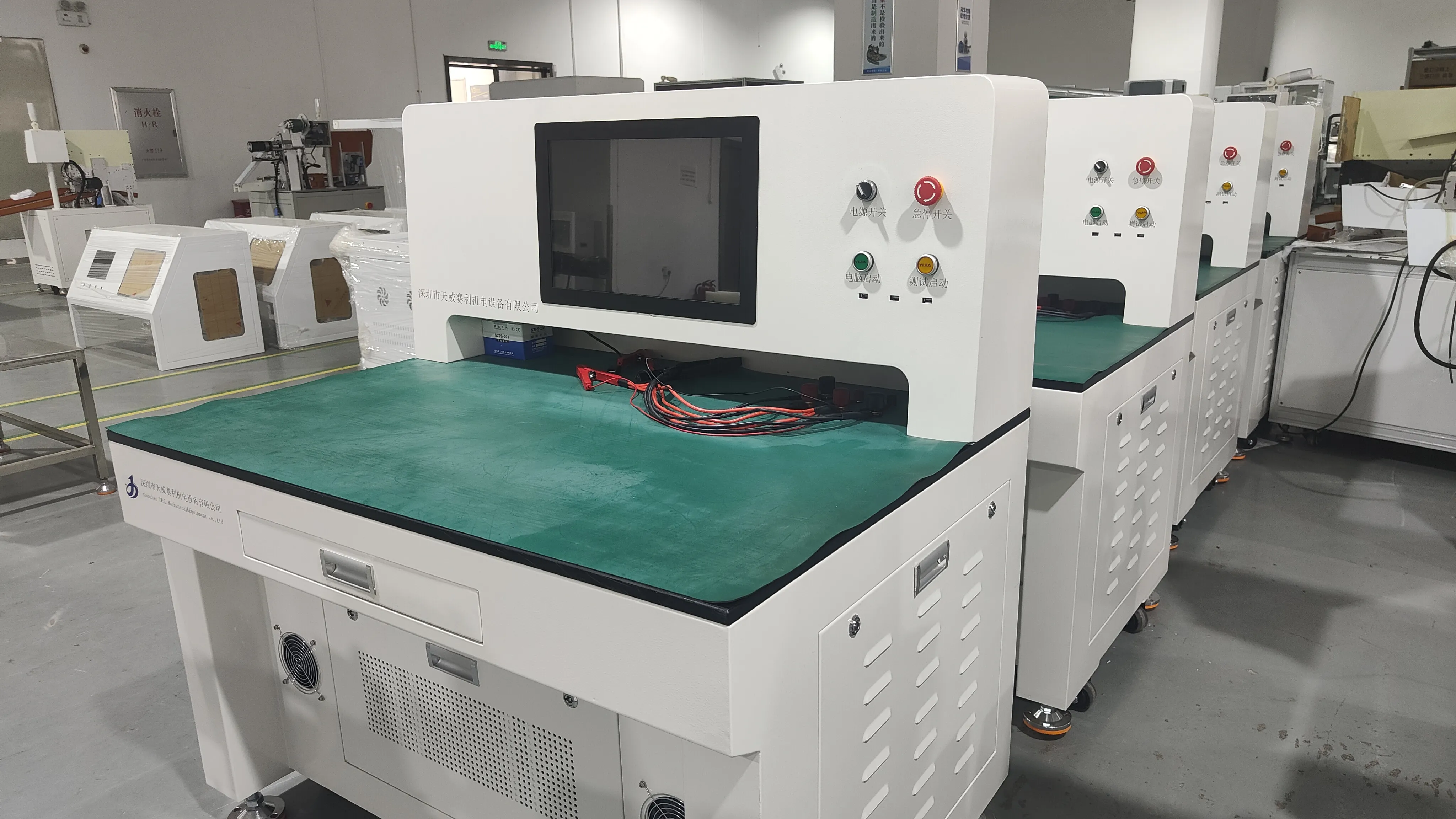In the battery manufacturing process, ensuring the quality and performance of finished lithium batteries is critical. A key piece of equipment for this is the Comprehensive Testing Equipment for Finished Lithium Batteries, designed to perform a series of essential tests that validate the battery's performance before it reaches the market. This machine ensures that all important performance parameters of lithium batteries meet industry standards and customer requirements.

What is Comprehensive Battery Testing Equipment for Finished Lithium Batteries?
The Comprehensive Battery Testing Equipment for Finished Lithium Batteries is a specialized testing system used to evaluate the performance of lithium-ion and other types of batteries at the final stage of production. The device is designed to perform a range of tests to verify the electrical and safety characteristics of the battery to ensure its readiness for end-use.
Key Functions and Test Items
This testing equipment covers various critical parameters to evaluate the battery’s overall performance, safety, and reliability. The key testing functions include:
Open-Circuit Voltage (OCV): Measures the battery’s voltage when no load is applied, providing insight into its state of charge and health.
AC Internal Resistance: Tests the internal resistance of the battery to understand the efficiency of its power delivery and internal connections.
Charging Current: Measures the current required to charge the battery, ensuring it aligns with specifications.
Charging Voltage: Tests the maximum voltage the battery can accept during charging, ensuring it does not exceed safe limits.
Discharging Current: Verifies the amount of current the battery can safely discharge, which is critical for ensuring performance during use.
Load Voltage: Checks the voltage under load conditions to ensure stable operation under normal working conditions.
Overcurrent Protection Current: Tests the battery’s overcurrent protection to prevent excessive current flow, safeguarding the battery and connected devices.
Overcurrent Recovery Voltage: Ensures that the battery can recover from overcurrent situations without damage.
Short Circuit Protection Time: Measures the battery’s response time to short circuit conditions, ensuring safety features are functioning correctly.
Importance of Comprehensive Battery Testing Equipment
Testing the performance of finished batteries is crucial for several reasons:
Quality Assurance: This equipment helps ensure that each battery meets stringent performance, safety, and reliability standards before being sent out for use. By catching defects or issues at this stage, manufacturers can prevent defective products from reaching customers.
Safety: Lithium batteries can pose safety risks if not properly tested, particularly regarding overcurrent and short circuit conditions. The comprehensive testing system helps confirm that the battery's protective mechanisms are functioning, reducing the risk of overheating, fires, or other hazards.
Efficiency & Performance Verification: The system ensures that the batteries can deliver optimal performance across all conditions—whether charging, discharging, or under load. This ensures that customers receive products that perform as promised.
Compliance with Industry Standards: Batteries must meet strict regulatory and industry standards. Comprehensive testing ensures that each battery adheres to these standards, helping manufacturers stay compliant and avoid potential legal or safety issues.
Role of Comprehensive Testing Equipment in the Battery Production Process
In the battery production line, this equipment plays a crucial role in the final quality control phase. After the batteries are assembled, they are tested with this machine to confirm that they meet the desired specifications for both performance and safety. The equipment performs various electrical tests to check voltage, current, internal resistance, and safety thresholds. Only batteries that pass these tests move forward to packaging and shipping, ensuring that the final product is reliable and safe for end users.
Conclusion: Why It’s Important
Comprehensive testing equipment for finished lithium batteries is essential for guaranteeing the quality, safety, and efficiency of lithium batteries. It allows manufacturers to monitor the electrical characteristics of batteries before they reach consumers, ensuring long-lasting and safe performance. By investing in such advanced testing equipment, battery manufacturers can reduce risks, improve product consistency, and maintain customer satisfaction.
If you're looking to ensure the highest quality in your finished battery products, incorporating comprehensive testing equipment into your production line is crucial for achieving optimal performance and safety.



